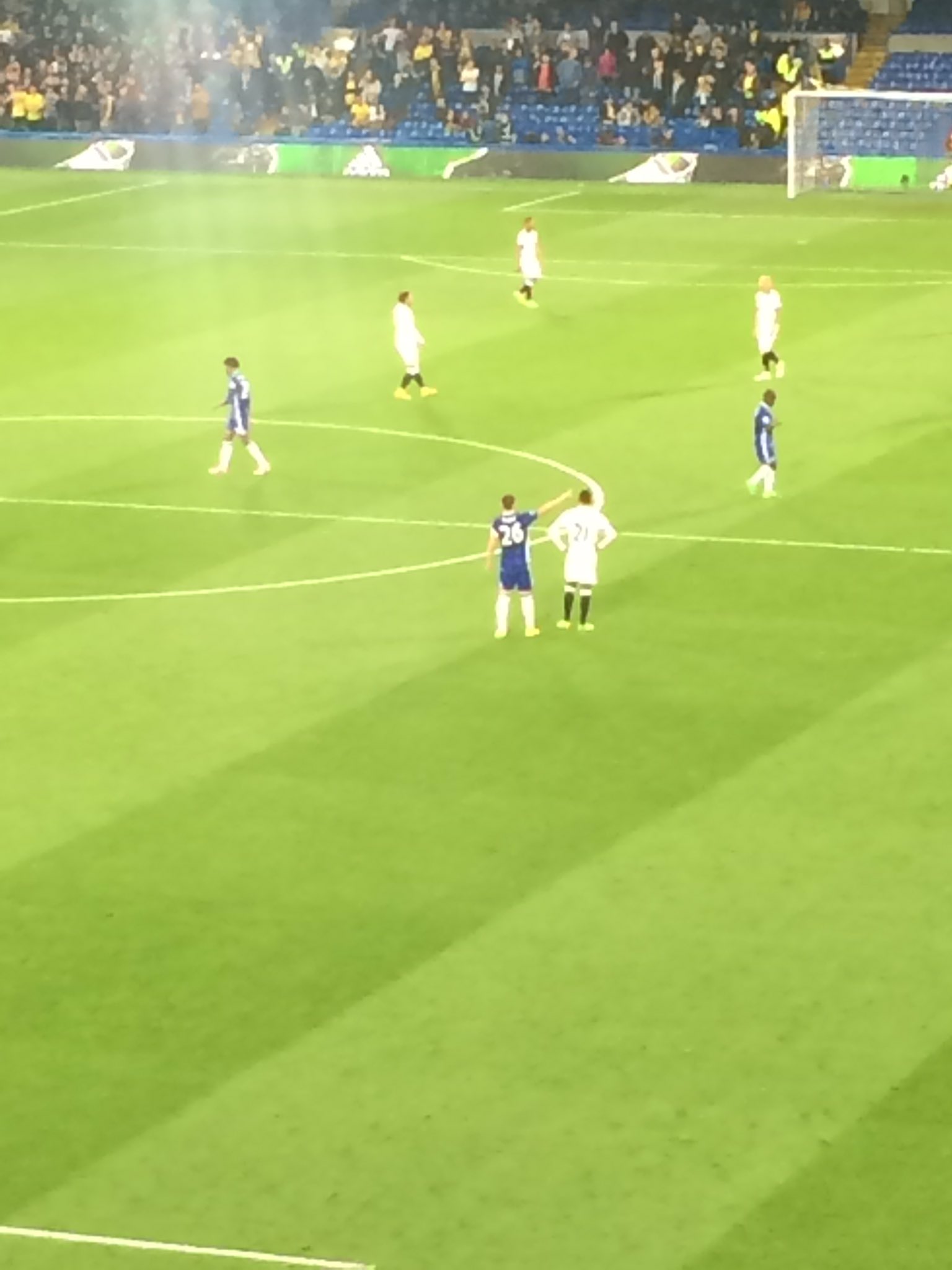Earlier this week, I went to Stamford Bridge for the last time this season. It was also the last time I will ever see John Terry play there for Chelsea.

As I watched him play and score, I realised I was sitting exactly where I was when I saw Terry make his debut almost two decades before.
He came on as sub for Dan Petrescu in a League Cup tie. Terry’s debut was overshadowed by the fact Petrescu went off in a huff, Luca Vialli scored a hat-trick and Dennis Wise got sent off for one of the worst and most pointless tackles I’ve ever seen. In the years that followed, I’ve moved house, crossed the river, changed jobs, had children, got married, lost my hair, written books… but whenever I’ve gone to the Bridge (less frequently in the past decade), I’ve always had the same seat and Terry has nearly always been on the pitch.
I didn’t know much about Terry when he made his first appearance, but quickly came to admire him as a player. He appeared to have inherited Frank Leboeuf’s gift for hitting raking inch-perfect passes but also loved a sliding tackle, making him the sort of UK-EU hybrid that can excel in the Premier League. It swiftly became apparent he was an exceptional defender. Commanding in the air and strong in the tackle, but also with an outstanding ability at reading the game and comfortable with both feet. I always felt this part of this game didn’t get anywhere near the credit it deserved. Terry was a fantastic footballer, as good on the ball as any defender I’ve seen – including Carvalho and Rio Ferdinand, his partners in defence for Chelsea and England, and to whom he was often compared unfavourably. True, they both looked more elegant in command, but Terry’s first touch was better than both. He couldn’t carry the ball, but he could pass it like a dream. And his reading of the game was immense; it was the reason he rarely got beaten for pace despite so clearly lacking it himself. I saw him once in Harley Street; he was tall but not as solid as I expected. Terry was strong but he was no carthorse.
At some point, however, Terry got typecast as a throwback, a sort of Terry Butcher upgrade, cannon fodder, a lion from the trenches. The Guardian’s execrable but influential Fiver began mocking him as EBJT, while the tabloids lauded him for his bravery above all else. As a result, his game did change slightly – read here what Charlie Cooke once told me about how the press can influence a footballer’s natural style – as he threw himself eagerly into blocks where previously he might have looked to get a nick. He soon adjusted his style again, and until age caught up with him had an astonishingly clean record. In the Champions League semi-final against Barcelona in 2009, when Chelsea spent almost the entire 180 minutes defending, he committed I think only a single foul.
As Chelsea captain, Terry had a role with far more importance at Stamford Bridge than almost anywhere else thanks to the stability and leadership he provided against a constant churn of incoming and outgoing managers. Terry often had to hold the dressing room together, most notably after Mourinho’s first departure when the team pulled together to reach the Champions League final despite the presence of out-of-his-depth coach Avram Grant.
Terry was often pinpointed as the troublemaker responsible for all this disruption but it always seemed to me that the continental-raised players – Ballack, Cech, Drogba – were usually at the centre of any shenanigans, raised as they were in a climate where it was more acceptable to confront coaches for poor decisions.
Still, the reputation stuck, along with much else. I’ve always tried to avoid judging players for things reported by the press, mainly because knowing how football journalists operate I don’t trust a word they write. I try to judge players only by how they good they are at football, so have no lacerating hatred of players like Suarez and Ronaldo or managers like Allardyce and Pulis – I think all four are brilliant. With Terry, that’s challenging. While some of the accusations made about him are hysterical – anything written by Matthew Syed, for instance – the volume of his indiscretions makes them hard to ignore. I cannot pretend I’ve ever warmed to the guy as a personality. Put it this way, he’s no Pat Nevin. But he is the greatest defender I’ve ever seen in my life and for much of the past 20 years it’s been a privilege to watch him do his job.

There’s a book to be written about English football fans ambivalent attitude to “classic” central defender captains, like Butcher, Adams and Terry. I guess it’s partly that they all had to live in the long shadow of Bobby Moore.